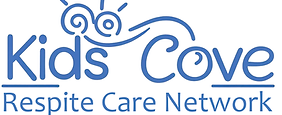How Respite Care Benefits Foster Families
- James Radford
- Nov 27, 2023
- 3 min read
How Respite Care Benefits Foster Families Image Description: A heartwarming image featuring a foster family enjoying quality time together. The parents are smiling and relaxed, while the children are engaged in various activities, such as playing board games, reading books, and doing arts and crafts. In the background, there is a cozy and inviting respite house, where the children receive care and support. This image represents the positive impact of respite care on foster families, providing them with much-needed breaks and ensuring a safe and nurturing environment for the children. Being a foster parent is a rewarding but challenging role. Foster parents open their hearts and homes to children in need, providing them with love, stability, and support. However, the demands of foster parenting can be overwhelming at times, and that's where respite care comes in. Respite care is a service that offers foster parents much-needed breaks while ensuring a safe and nurturing environment for the children. It provides temporary care for foster children, allowing their parents to recharge, take care of personal needs, or simply have some time for themselves. The Kids Cove Respite House, a non-profit organization located in Gravois Mills, Mo, is dedicated to offering respite care to foster families in the Lake of the Ozarks community. So, how does respite care benefit foster families? Let's explore some examples, thoughts, and tips: 1. Time for self-care: Foster parenting can be emotionally and physically demanding. Respite care gives foster parents the opportunity to take care of their own well-being. Whether it's going for a walk, practicing self-care activities, or simply having some quiet time, respite care allows foster parents to recharge and rejuvenate. 2. Strengthening the family bond: Respite care provides an opportunity for foster families to spend quality time together. When parents have a break, they can focus on building stronger relationships with their foster children. They can engage in activities that promote bonding, such as playing games, reading books, or doing arts and crafts, just like the heartwarming image depicted above. 3. Support for foster children: Respite care ensures that foster children are in a safe and nurturing environment while their parents take a break. The Kids Cove Respite House, for example, offers comprehensive care services to meet the unique needs of each child. This support helps foster children feel secure and loved, even when their parents are temporarily away. 4. Community involvement: Respite care programs like Kids Cove Respite House rely on support and partnerships from the community. Churches, businesses, and individuals can contribute by volunteering, donating resources, or spreading awareness about the importance of respite care. By getting involved, the community can make a positive impact in the lives of foster children and their families. 5. Building a support network: Respite care programs often provide an opportunity for foster parents to connect with other foster families. This connection can be invaluable as it allows parents to share experiences, seek advice, and build a support network. Knowing that they are not alone in their journey can provide foster parents with the strength and encouragement they need. In conclusion, respite care plays a crucial role in supporting foster families. It offers foster parents the much-needed breaks they deserve while ensuring a safe and nurturing environment for the children. The positive impact of respite care can be seen in the smiles and relaxed expressions of the foster family in the heartwarming image. By supporting organizations like Kids Cove Respite House and spreading awareness about respite care, we can make a difference in the lives of foster children and their families.


Comments